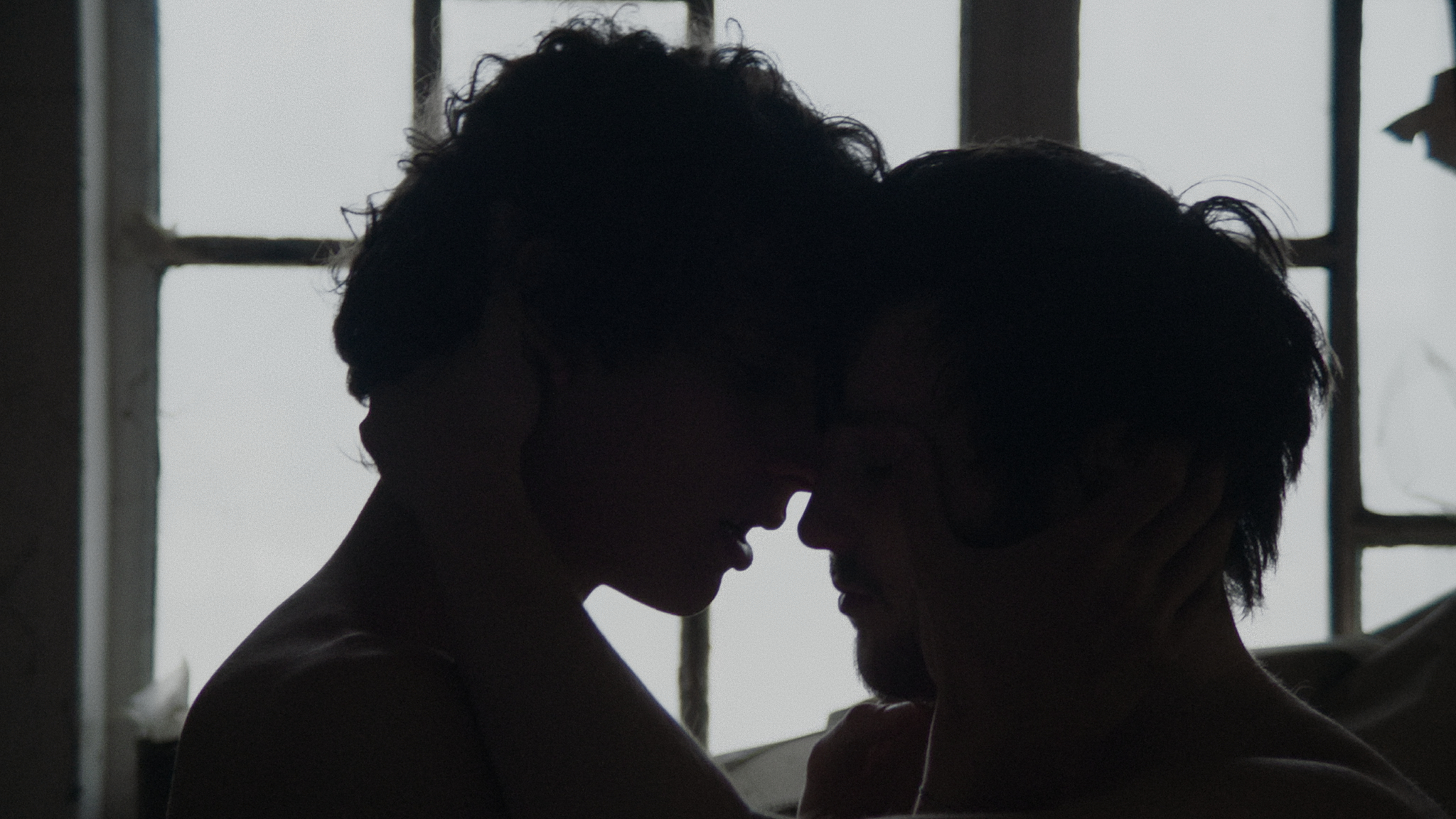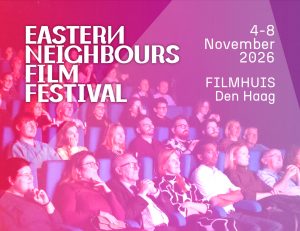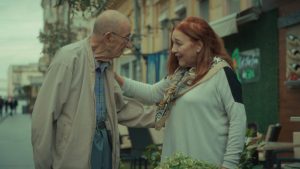
BLOG · Flash reviews: Sandbag Dam – When Lightning Flashes Over the Sea – Eighty Plus
Words by Inna Tsvik
Day 2 of the festival has come and gone, but oh my, did it have a lot to offer when it comes to cinema.
Sandbag Dam (Zečji Nasip) by Čejen Černić Čanak (2025)
Černić Čanak’s sophomore feature Sandbag Dam had its world premiere on 16 February 2025 as part of the Generation 14+ section at the 75th Berlin International Film Festival (Berlinale) and was well received by critics and audiences alike. It tells the tragic, but ultimately tender tale of two childhood friends reconnecting as lovers, as one of them returns home after time abroad. Slaven (Andrija Žunac) returns home from Berlin to attend his father’s funeral, where he reconnects with his childhood friend Marko (Lav Novosel).
From the moment they lay eyes on each other, there’s palpable tension, as they try their best not to talk or be seen with one another. Soon, however, they can’t stay away and so rekindle their friendship, which turns out to be a romance, and face the consequences of young gay love in a homophobic society.
Sandbag Dam is a great example of gay romance done right. Longing stares and romantic encounters are juxtaposed with everyday homophobia without the gross exaggeration other such films might resort to. Opting for the realistic gray slog of parental disapproval and homophobic slurs from people that were supposed to be your friends, rather than dramatized (fetishized) gay bashings, this banality of evil makes you root for the main characters even more. Furthermore, Slaven and Marko are fully fleshed out people, outside their sexual orientation, as they both have dreams, hobbies, and life goals outside of getting together, their familial bonds – Marko and his younger brother, Slaven and his mother – are portrayed to be as important to and for them, as their romantic connection.
When Lightning Flashes Over the Sea by Eva Neymann (2025)
When Lightning Flashes Over the Sea premiered at the 75th Berlin International Film Festival (Berlinale) as part of its Forum section on 15 February 2025 and tells the story of ordinary life in the face of a never-ending horrific war.
A boy babbling incessantly about his dream birthday party (medium-sized chocolate cake, huge pizza for everyone, flowers at the entrance) opens the film which shows him leading us through the sun-drenched streets of Odesa, Ukraine. He stops at a church, and it is here that we get a glimpse of the liminal terror that grips the city – people praying beside a caved-in roof, the rubble of the church a silent monument to its destruction. Soon we part with the boy, as quickly as we met him, leaving him to fend for himself as we meet and leave other colourful characters in a languid rhythm reminiscent of the back and forth of the tides coming in at the Port of Odesa.
A vagabond philosopher quotes Brodsky, an old, lonely woman finds solace in tending to the city’s street cat population, and a seasoned theatre actor reminisces about his life on and off the stage. All of them, vulnerable and full of hope, show us a relentless pursuit of normalcy amidst missing relatives, death and grief. With small acts of kindness, the citizens of the besieged city defy the cruelty of the war, while grappling with their own mortality and that of their loved ones.
As we touch, one life, after another, as we leave them behind never to be seen again, defying the cinematic convention of the callback, we come to realise how fleeting a life – any life – can be. Moments of sadness and terror pass as quickly as joy and love and what remains is a life of dreams, as fleeting and beautiful as lightning flashing over the sea.
Eighty Plus (Restitucija, ili, san i java stare garde) by Želimir Žilnik (2025)
The comedic docu-fiction by Yugoslav Black Wave legend Želimir Žilnik had its world premiere on 14 February 2025 at the 75th Berlin International Film Festival (Berlinale) as part of its Forum section and tells the story of a retired jazz musician returning home to the Vojvodina region in Serbia to inherit his family’s land, after it was expropriated by the communist government after World War II.
Stevan (Milan Kovačević), a retired jazz musician, returns to Serbia, after living in Germany for over sixty years to get back his family home as part of the so-called restitution program that aims at returning expropriated land to its rightful owners. Gentle soul that he is, Stevan inspects his former childhood home, which turns out to be a villa of gigantic proportions, in a nostalgia-tinged haze, telling stories as he goes from room to room with his school friend Milan and Nina, the daughter of a friend from Austria. Milan, as the more practical of the two, tells Stevan right away that it will take an inordinate amount of time and money to restore the palace to its former glory and recommends leaving it as is and cherish the memories rather than the house itself.
The house, as Milan suggests, is of course not the point of this tender slice of life. Rather it is about Stevan reconnecting with the country he fled decades ago, with his former colleagues and estranged family members. In every encounter, be it a jam session with his 80+ bandmates or a visit to his ex-wife who divorced him, because she didn’t want to leave the country, Stevan shows a remarkable joy for life, showing that he, as the avatar of an older generation, still has important and profound things to say and contribute to an increasingly ageist society. With a hunched back and a smile on his lips Stevan jokes, reminisces and flirts his way through the hardships of remembrance, while navigating Serbian bureaucracy at his own slow and steady pace.
Eighty Plus shows us that older people are entitled to a full joyous life, filled with love, affection and humour, that they deserve to be listened to as any member of a democratic society and that it is on us to facilitate and, most importantly, not begrudge them their existence.
Catch Eighty Plus as part of our On Tour screenings on 13 December 2025 at the Louis Hartlooper Complex in Utrecht!





